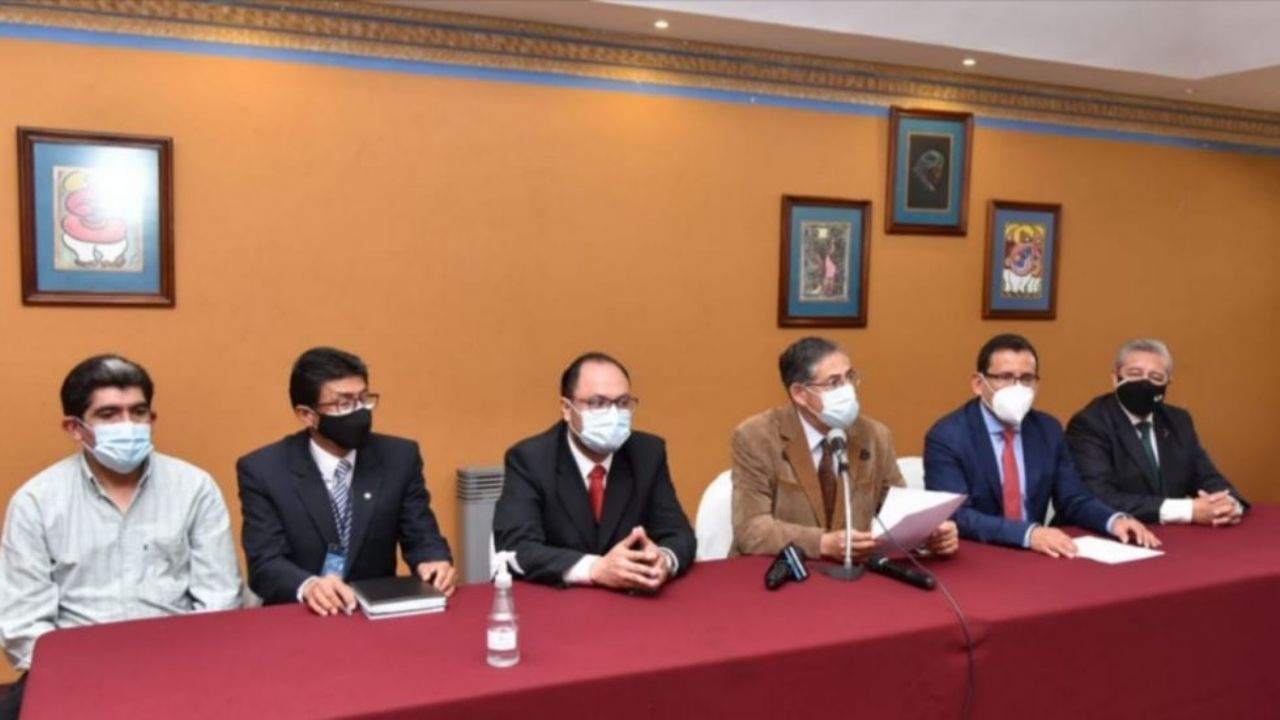Digital Page Seven
The National Council of the President and managers of the Chambers of Industries of Bolivia, meeting in Tarija, issued a four-point statement to outline the reactivation of the country’s industrial apparatus and, in this context, they considered it vital to accelerate the vaccination process against the coronavirus, since they assure that it is the only door for the complete opening of the economy.
“Vaccination is the way to the complete opening of the economy, to return to work, to school and to leisure and consumption activities. The low population levels with complete vaccination in Bolivia (29%) constitute an enormous limitation to return to the necessary levels of economic activity. The only way to revive the economy is to achieve immunity. Therefore, it is clear that this should be the main objective of public and private organizations ”, indicates the diagnosis of the industrialists.
You can also read: Quinoa sales fall by 35% and Peru gains market
The four proposals of the industrial sector aim to:
1. Establish the set of policies, plans and programs necessary to reactivate the economy from a comprehensive perspective. The impact of the pandemic has affected all sectors, all regions and all strata of society, so it is necessary to identify the effects, quantify them and determine the best way to overcome them without exclusions.
2. Request the national government and subnational governments to promote vaccination campaigns against Covid – 19 with greater force and urge industries in Bolivia to undertake programs and business projects that contribute to a higher percentage of complete vaccination of the population.
3. It is imperative the integration and road link between the north of the country (Beni and Pando) and the center, south and west. Likewise, it is essential to generate new export routes through new “waterway” routes such as the Ichilo – Mamoré route. Likewise, direct air integration and linkage between all the country’s departments.
4. Initiate, in a sustainable and effective manner, the transition to formality. Smuggling and underemployment are part of a productivity problem, but also of the scale and complexity of the regulatory scheme, which does not offer any attractive option to millions of Bolivian families. The effective fight against smuggling must begin by eliminating the restrictions and costs faced by families seeking to create quality, formal employment for their own and other families. This is a time of change that we must take advantage of to initiate that transition.
Diagnosis
According to industrialists, the sector needs large amounts of energy, essential for its production processes; it requires the investment of a lot of capital, huge amounts of raw materials, skilled labor and markets with purchasing power. All these conditions today are threatened by internal and external factors.
They point out that the liquidity crisis that the entire world has faced as a result of the pandemic has put at risk the payment chains and the access to credit of families and companies throughout the world.
“In our country, reality continues to be distorted by measures that were necessary at the time, but that require complements to mitigate the effects of loss of income, sales and markets. It is necessary to ensure that the flow of resources in the economy is maintained and lasts in order to achieve an adequate recovery ”, points out the sector.
Industrialists add that the pandemic has highlighted the gaps in access, provision and use of new technologies that we face in our country in relation to neighboring economies and the rest of the world. That is why the industry requires qualified human capital, capable of adapting to the new conditions imposed by new technologies and forms of production.
“As industrialists we have assumed a large part of the training of our workers, their training and job development. For this reason, it is necessary to provide the industrialist with the necessary conditions to continue with these policies ”, they point out.
You can also read: Uber mobilized 30 million people and seeks to expand
They indicate that over-regulation, selective and asymmetric oversight, and unfair competition faced by the industry do not help facilitate continuous training policies, so important in times of technological change.
They argue that access to raw materials, supplies and materials has been affected by bottlenecks in international logistics chains, problems in the air transport that we have and the droughts that affect river transport.
“This will have effects on supply and production costs, which are assumed by the national industry, but which undoubtedly affect our competitiveness. In this context, it is important to avoid falling into blind regulation and to support the national productive apparatus. At a time of external shocks, it is not possible to think that they must also face restrictive and coercive regulations that only harm industry and national employment, ”the industrialists point out.
They also note that smuggling, laws that discourage investment, institutional weakness and the needs faced by those families who have been left without access to decent employment, pushing them towards informality, affect the investment climate, the development of the industry. and the generation of quality employment.
They warn that this vicious circle can reproduce even the unsustainable social and economic climate if it is not taken into account that it is the principles of freedom and legal security that allow the best allocation of resources. The current situation demands greater responsibility in the design of public policies and regulation.















